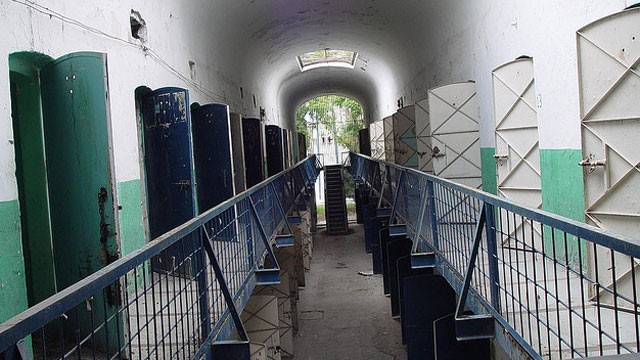Featured
Minister of Justice wants prisons decongested

The Attorney-General and Minister of Justice, Mr Abubakar Malami, SAN, has called for speedy decongestion of Custodial Centres to meet with International Human Rights Practice.
Malami made the call in Abuja at a three-day strategic workshop for `Effective Implementation of the Nigerian Correctional Service Act, (NCSA) 2019?.
The workshop is hosted by the Office of the Attorney-General of the Federation in collaboration with the Presidential Committee on Correctional Service and Reform, and the Nigerian Correctional Service.
“The Act repealed the Prisons Act, Cap P29, Laws of the Federation of Nigeria, 2004 and provides the legal and institutional framework for emerging Nigerian Correctional Service.
“The provisions of the Act have been adjudged to be comprehensive and in compliance with International Human Rights Standards and good correctional practices.
He added that the ministry and stakeholders had already put plans in place that would help fast track decongest the Prisons from 2020.
“The Presidential Committee on Prisons Reform and Decongestion plans on holding a National Summit on ways to sustain the decongestion of Prisons in Nigeria.
“We will also host meeting of the Attorneys-General of the thirty-six states of the Federation to develop appropriate policy to fast track decongestion of Prisons.
“Build capacity for Judges, Magistrates and Correctional Officers on Non-Custodial sentencing and measures’’.
The Minister said that they will also intend to set up a National Task Force in collaboration with the 36 State Government towards decongesting awaiting Trail Persons in custody.
“A similar instance, like the Task Force set up in the Federal Ministry of Justice to deal with Boko Haram Awaiting Trial Persons in Kainji, Niger State and in Borno State that yielded humongous result.
“Therefore, as a leading stakeholder in the Justice Sector Reform Program, be assured that the ministry will continue to provide its high wattage support to the reform of the Criminal Justice Sector in Nigeria.
Prof. Yemi Akinseye-George SAN, President, Centre for Social-Legal Studies (CSLS) who was represented by a Deputy Director, Mr Godwin Iheabunike, while delivering the overview of the NCSA collaborated the Ministers view of the Act.
“The Act addresses new issues that are not covered by the repealed Act and provides clear rules setting out obligations of the Nigerian Correctional Service and the rights of inmates.
“It is in harmony with the restorative justice provisions of the administration of criminal justice Act 2015 which provides several alternatives to imprisonment.
“The alternatives include; Community Service Order, Suspended sentence, rehabilitation, compensation, restitution and treatment of offenders’’.
According to Akinseye-George, `a superintendent can refuse to admit any person brought in with severe bodily injury, who is mentally unstable or in an unconscious state of mind or under aged (defined as any person below 18 years of age).
“The correctional service shall take adequate steps to ensure the prevention of torture, prevention of inhumane and degrading treatment against inmate.
“Prevent sexual and non-sexual violence and bullying and ensure effective procedure for prevention, identification of early warning sign, detection of occurance, punishiment of perpetrtors and protection and treatment of affected victims’’.
He also said that there should be funds for minimum standards for the treatment of inmates.
“There should be correctional service funds appropriate for inmate’s feeding as provided by the government.
“Subject to the above, the cost of feeding should be reviewed at a period not exceeding five years from the date of last review or as the National Economic circumstances permit (section 30).
“There shall be the provision of basic needs to meet the minimum standards for the treatment of inmates which includes accommodation, feeding, potable water, hygiene, sewage disposal, clothing and toiletries’’.
He added that the Correctional Service would establish separate male and female borstal training institutions for juvenile offenders in all states of the federation: their treatment, including rehabilitation, shall be the underlying principle for the custody.






